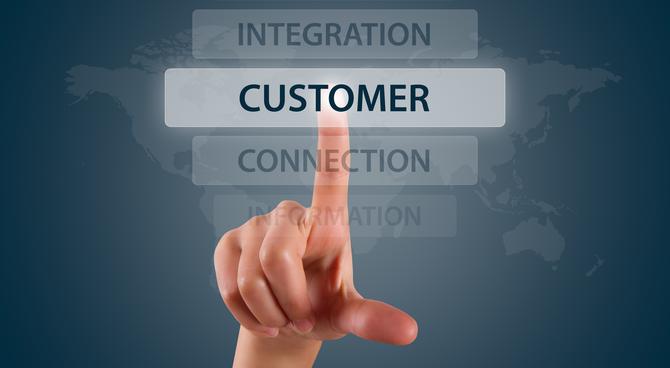Ticketek’s parent company is building out a data analytics and services division that not only wants to help brands derive better customer insight from first-party data, but also tap into the wealth of ‘affinity’ data generated by the live experience economy.
TEG Analytics sits within the TEG Group, a portfolio of ticketing and live entertainment businesses acquired by Affinity Equity Partners from the Nine Entertainment Company in August 2015. Core brands include TEG Live, Ticketek, Qudos Bank Arena, TEG Rewards and Eventopia.
The TEG Analytics standalone subsidiary was launched earlier this year as a way of optimising and commercialising the data sets and analytics capabilities of the wider group. According to its general manager and employee number one, Andrew Reid, the key differentiator is the ‘affinity’ data TEG holds on its 12 million Australian members across 20,000 events and 24 million experiences per year.
A ‘database of affinity’ was first coined by Forrester Research as a way of describing insights relating to an individual’s intents, passions and desires. Thanks to digital connectivity and interactions, it’s now becoming possible to gauge these through data.
In TEG’s case, this data is originating from live experiences, reflecting the preferences, taste, interests and passions of Australian consumers, Reid said. He described affinity data as the “genome of our character, personality and values”, and something that allows brands to engage on a whole new emotional level.
“This data is very different from commercial, financial, grocery and auto data,” Reid told CMO. “It’s a multifaceted piece of data, based on purchase history across sports, arts and entertainment, and tells us a lot about a customer. Combined, it delivers a complex picture of people, what they’re spending, demographics and so on.”
It’s harnessing affinity data on identifiable customers that is seeing Facebook rapidly corner the media advertising market, Reid said. And it’s why TEG Analytics is now positioning itself as an alternative media partner to Facebook through its ‘smart affinity’ proposition.
“We have similar scale, but importantly, what we’re developing is a level of data that not only provides a solution from a media perspective, but also delivers analytics and insights expertise,” he explained. “We are playing in that same space as Facebook.
“But we have a symmetrical role, whereas Facebook is asymmetrical - you put data in, it spits out a media solution and away you go. For us, this is a two-way street. We take a client’s data, match against that, augment it and pass that back. We use that data in a programmatic sense, but we’re also passing data back to the client to enrich their systems, such as CRM, in order to build more complex profiles around their customers.”
To achieve this, TEG Analytics has invested in a team of 11 staff, including analysts, business intelligence and business specialists who help productise the data, as well as provide professional services on top. It’s also invested in Krux as its data management platform (DMP) as a foundation capability, and increasingly becoming technology agnostic in order to integrate with the various platforms being used by partners.
For Reid, the ultimate ambition is to improve brand experiences and engagement. He highlighted three core focus areas: Audience, customer experience and customer profitability. “If our data points help businesses we work with on any or all of those three areas, then that’s our job done,” he said.
Having affinity insights allows marketing teams to improve product design, better communications and timing of these communications, Reid continued.
“Affinity data always been known to be powerful; we’re the 600-pound gorilla when it comes to behavioural data,” he claimed.
Data privacy and governance will be key to ensuring the success of TEG Analytics, and Reid said the group’s privacy officer now sits inside the analytics division, working closely with business and legal teams. “They’re always involved in first conversations with data exchange and matching,” he said. “We’re being very careful about that, because if we drop the ball, it reflects poorly on rest of the business.”
An early example of TEG Analytics’ in action is its exclusive partnership with Fairfax. The deal sees TEG’s consumer data combined with Fairfax Data and audience insights, allowing the media giant’s advertisers to better target its digital audience.
“We’re doing audience segmentation and working with Fairfax’s clients with CRM matching to develop segments around their customers who are then identified programmatically on the Fairfax platform,” Reid said.
The sweet spot is businesses that are mature from a data perspective, have the confidence to test and learn from those data points, and who are willing and able to work with a partner on sharing and improving on those insights, Reid said.
TEG Analytics has also started working with groups in the retail, automotive and liquor sectors, but Reid declined to disclose names. However, by way of example, he pointed to work being done with a liquor brand to improve its customer engagement proposition. TEG Analytics has taken membership data, pulled it into its systems, matched customers from both databases and profiled the overlap audience.
“Once we do that, we have a deep, broad sample of people in both businesses and we can then start appending not just purchase behaviour on one side, but traditional behaviour on the other,” he said. “That business is now starting to understand when’s the best time to be in the market, how to change comms and creative, the product design and the mix and use the aura or halo effect of cricket or tennis to emphasis its products.
“They’re latching on to power in live economy because it’s a big piece of their customers’ lives and helps them be more strategic about customer engagement.”
Follow CMO on Twitter: @CMOAustralia, take part in the CMO conversation on LinkedIn: CMO ANZ, join us on Facebook: https://www.facebook.com/CMOAustralia, or check us out on Google+:google.com/+CmoAu












